- Home
- Merrie Destefano
Shade_A Re-Imagining of Mary Shelley's Frankenstein Page 2
Shade_A Re-Imagining of Mary Shelley's Frankenstein Read online
Page 2
Almost.
Three
I didn’t dress for dinner that night. I didn’t wash my face or my hands. Wearing the same clothes I went hunting in, I met the others in the dining room at seven, burrs in my shirt and leaves in my long dark hair. I imagined that I was a wild fairy princess come to devour someone’s favorite child and I sat at my place, quietly daring anyone to mention my attire.
They each looked at me, then at one another with raised eyebrows. Byron was the only one who seemed to understand. He raised a glass to me.
“To the Great Huntress!” he proclaimed.
The others, all except Percy, lifted their glasses, laughing and agreeing. Even Claire went along with the toast, although she hated it whenever I was the center of attention.
My sullenness vanished when the servants began to carry in the food, for I had made several special requests for the evening’s meal. The rest of us got plates heavy with roasted venison and thick wedges of potatoes and carrots. But Percy—the dear, sweet devout vegetarian who refused to even kill a mouse—got a plate bearing a large silver cover. I’m sure he wondered what sort of delicacy the cook had created for him, for he had charmed the cook and all the maids so much that they grew quiet whenever he spoke. They all longed to hear him recite one of his poems and they probably hoped that one day he would write one for them.
So I watched, amusement in my eyes, when he lifted the cover and then jumped back, startled to discover the deer’s head, blood pooling like a rich sauce about her throat.
“You’ve gone too far, Mary!” he declared, pushing his chair back, as if he couldn’t get far enough away from his dinner.
“Have I?”
“Life isn’t something to be taken so lightly.”
“Neither is love.”
The others seemed intrigued by our discussion, though they failed to see the hidden meaning.
“What if you could bring it back to life?” John asked.
“Why would I want to?” I replied with a frown. “So I could hunt it again?”
“No, I mean, what if we had the ability to raise the dead? To reanimate something that had been living.”
I wasn’t sure if I liked this turn of conversation. I wanted Percy to apologize for the poem he had written and left for me to read. But he wasn’t paying attention to me anymore. I could see the thoughts dancing in his head, just like the lightning that had bounced from one cloud to another for most of the day.
“Are you talking about galvanization?” Percy asked.
Byron’s mouth was full, but he joined in nevertheless. “Yes, it’s all John ever talks about lately. You’d think being a doctor, he’d have more than one scientific theory to ponder. But apparently, this is the only one that matters.”
“What is galvanization?” Claire asked. She was toying with her food, moving it about her plate. I knew I should stay focused on the conversation, but part of me was worried. She needed to eat for the baby’s sake, but she was always more concerned about her figure.
I was about to point to her food and remind her to eat, when John spoke.
“Luigi Galvani calls it animal electricity. It appears there’s something left in the muscles after death,” he answered, his features lighting up and becoming even more attractive. Something about him felt dangerous, as if God had put too much in one vessel—too much intelligence, too much beauty. He was the sort of man I’d always avoided. “Some people, like Erasmus Darwin,” he continued, “believe that under the right conditions, you might be able to bring someone back from the dead.”
“I certainly wouldn’t want to see my father again,” Byron said with a wry grin. “That bastard stole my mother’s fortune and squandered it away and, even then, he kept borrowing money from her. My life would be quite different if that old buzzard were still alive.”
An old familiar pain hit me in the pit of my stomach—a memory of the one good thing that had come from my union with Percy. Our infant daughter appeared, as if she was right in the room with us. She nestled in the crook of my arm, skin like pink velvet, eyes lined with thick lashes. It was frightening when she appeared to me like this, for I could actually feel her skin pressed against mine and I could smell the faint fragrance of milk on her breath. She never stirred, like a living infant would have—instead, she held perfectly still as if neither one of us wanted to break the spell. She would have been such a beauty when she grew up and I’d had grand plans for her—she would have had all the fine education I had been denied; together we would have traveled through Europe during the holidays; and I would have made sure she had an introduction to high society when she was of age.
She would have glittered like a star, brighter than me, brighter than even her father, Percy—
I didn’t mean to, but I spoke aloud, my voice as soft as the swaddling silk that had wrapped about her.
“If someone could bring back my baby—”
I stared into space, not mindful of the other people in the room, a single tear forming, then sliding down my cheek. After a few moments, I realized Percy was watching me, his large dark eyes filled with strong emotion.
“We will have another,” he said tenderly, one hand covering mine.
I nodded.
Our daughter had been born premature and lived for a mere twelve days. Still, a suffocating depression came over me in the most unexpected moments.
Like this.
We were cursed.
And as a result, our dead child was haunting me, breaking my heart, pulling me down into a pit so deep I didn’t know if I would ever escape.
The room had grown quiet and everyone was looking at me. With a hasty brush of my bloody hand, I swept my tear away, and then I forced a fake brightness into my eyes.
“What? Have you all finished eating already?” I gestured toward the cook. “Then wait until you see the marvelous dessert we have tonight!”
John looked at me from time to time throughout the meal, an unusual expression in his eyes as if he were able to read my deepest secrets with a mere glance. But he didn’t speak of raising the dead again. At least, not on this night.
And for that, I was eternally grateful.
Four
Later that evening, after our dessert and our brandy, we took turns reading ghost stories from Fantasmagoriana, one of the books we found in the library. Firelight licked the walls with shades of orange and red, while we all curled beneath blankets, giggling like schoolchildren. Snow was falling and wolves were howling outside, and together they gave the evening a delightfully eerie chill that even the combination of brandy and firelight could not abate.
I snuggled in Percy’s arms, my head on his chest. He had forgiven me for killing the deer and I had forgiven him for writing a sonnet to his dead wife. Claire was just finishing her third glass of wine and I was certain that she was now flirting with John. A slow smile curved across her dimpled cheeks as she stared at him.
“This is really quite terrible,” Percy complained, after reading a few paragraphs of the book aloud.
“It’s your turn, you can’t just give up,” I prodded him.
I glanced at Byron and he gave me a knowing shrug, as if to say, all men are beasts. I frowned back at him. At times Byron and I were like brother and sister, of one mind and purpose. At other times, like this morning in the woods, I felt the heat he bestowed upon those he wished to conquer—those were the hardest times for me, for his friendship meant so much that I refused to give in to those feelings.
Though I secretly desired him.
All women did. Many men did, as well.
“I could write a story much better than this,” Percy mumbled.
“So could I,” John agreed. He sat in a corner, taking part in our game. He often ignored us in the evenings, alternating his time between the stack of reference journals he had brought with him and the books of local folklore he found in Byron’s library. Throughout our holiday, John had seemed abnormally consumed by something. He was continually flipping
through one book after another, as if hoping to uncover some great mystery.
Byron stood then and began to circle us, his face glowing in the firelight. “We should write our own stories!” he declared, an enthusiasm in his voice that we couldn’t ignore. None of us could ignore him when he was impassioned. He could melt the hardest heart with his words, twisting your opinion from no to yes in a matter of minutes, though you couldn’t remember how or when you had changed your mind. “We should each write a tale of the deepest, darkest horror, something truly terrible—”
I sat up, the blanket sliding from my shoulders.
“Yes,” I agreed.
His gaze met mine, fire in his eyes that warmed my soul.
John nodded. So did Percy.
“Something that will terrify and frighten and it must feel as though it were real,” Byron continued.
Claire watched us all, a look of confusion on her face. She ran her right hand over her belly, tracing the shape of the babe inside. At last, she nodded along with the rest of us.
None of us knew where this would lead. How could we? Perhaps, if we had, we would have chosen another pastime. As it was, our simple game was going to conjure a darkness unlike any the world had seen before.
Five
Several days passed as we all tried to write, scribbling pages in stolen moments and refusing to share them with one another. Every time I encountered Byron in the hallway, I noticed that his mood was growing more somber, and I feared he was having the same problem I was.
I couldn’t think of anything to write.
I could understand this happening to me, but Byron was a celebrated poet. Ever since he’d published Childe Harold’s Pilgrimage in 1812, he’d become a literary success. In his own words, “I awoke and found myself famous.”
Now we were both failing at our writing challenge.
One morning I found him in the kitchen, a plate of uneaten eggs and sausage before him, a troubled look in his eyes.
“I’m going into the mountains for a few days,” he confessed, as if that was all I needed to know. John watched him quietly from the other side of the table, his lips drawn in a tight line. I wondered what they had been discussing before I walked into the room and whether Byron was secretly off on a quest for local folktales, tracking down something he could use to write his story. Jealousy surged within me and I longed to go with him. I almost followed him out to the stable, ready to saddle one of his horses and gallop beside him.
He’d gone dry, we both had.
I don’t like remembering that time, though it burns bright and hot in my dreams. Since my daughter’s death, I had proclaimed myself a virgin again, vowing to wait for my marriage bed—which seemed to grow more distant with each passing day. So, I slept alone, while my fiancé indulged in wine and laudanum, both of us fighting nightmares. Mine, that I was unsuccessfully trying to rouse our dead baby girl; his, that his dead wife was pulling him into the Serpentine River.
Meanwhile, a bizarre storm continued to rage about us. Snow had been falling all night long until a thick white blanket covered the surrounding hills and forests, and ice glittered in the trees like crystal. With every breath of wind, the branches creaked and groaned, as if the trees themselves were complaining. Flowers that had dared to blossom now drooped, heavy with frost. It felt as if winter would never end.
It was in the midst of this horrid weather that Byron left the four of us in the villa. I watched as he saddled his horse, packing a hunting rifle, his journal, that old dueling pistol, ammunition, and enough provisions for several days.
I should have been worried for his safety, for the trails into the mountains would be treacherous with all the snow and ice. I should have said a prayer as he rode away, something to protect him from the wolves and the bears that now lived in the nearby woods. The wild dogs had been howling for so many days that I’d blocked out their cries.
I should have been listening.
The moment Byron left, the dynamics in our group changed. I grew more withdrawn, spending both days and nights in my room, writing snippets of my story and drawing sketches of something I saw in a dream. At first, my drawings looked a bit like a man, big and clumsy, with a broad forehead that implied intelligence. His eyes, however, were those of an animal, trapped and frantic, as if he longed to be set free. The skin on his arms and legs and torso looked like a patchwork, with thick uneven stitches tugging at rippled folds of flesh.
This was my latest nightmare.
Visiting me, again and again.
At times it reminded me of the dreams I’d had after my daughter’s death—when I imagined that Percy and I had managed to bring her back to life, rubbing her cold skin while we kneeled before a fire, until at last, she had revived, emitting a long, squalling cry that made my heart explode with joy.
Yet, every morning I had woken to discover she was still dead.
There was something familiar in this new story growing inside of me—my patchwork man was the product of galvanization, just like what we had all discussed during dinner several evenings earlier.
He was a creature risen from the dead, part child, part man, built from the scraps of the dead like a machine made from leftover pieces. And he was a tortured creature, in many ways just like me.
Six
I wrote fifty pages and made at least twenty sketches over the next three days, trying to rid myself of my night visions: there were drawings of my patchwork man’s fingers and toes and the back of his skull. With each sketch, I fixed him more firmly in my mind, making him more real. I became aware of his lumbering gait and how his clothing hung awkwardly because one arm was longer than the other and how his lower teeth curved in, not lining up properly with his upper teeth.
But with each drawing, I also became more aware of my poor knowledge of anatomy.
So, I decided to sneak into John’s quarters and look through the reference journals he had brought with him. Like all the others, I was still keeping my story a secret, otherwise I would have asked for his permission.
One morning I waited, just inside my door, until I was certain that he and Percy and Claire and all the servants had gone downstairs. Then I crept out, as quietly as I could when walking across old wooden floors that creak with every step, down the hallway until I stood before his door. A quick glance in both directions told me that no one else was about, so I went inside his room, grateful that he hadn’t locked the door. The drapes hung open and a soft amber light washed the space, setting dust motes tumbling. His lodgings were a cluttered mess, his blankets and pillows a tangle that pooled onto the floor, clothes strewn haphazardly about on chairs, and books everywhere—some open with notes in the margin, some closed with bits of paper marking places where he had stopped reading.
I wasn’t sure where to start looking, so I stepped cautiously about the room, careful not to trip on the boots or shoes that littered the floor.
It wasn’t until I reached the middle of the room that one of his handwritten journals caught my eye, for it held drawings somewhat similar to mine. I sank to the floor, sitting on my heels, flipping through the pages, each one bringing me to a greater level of astonishment and horror. This could have been one of his anatomy journals, but the images inside had a dark flavor that made my stomach weak. The pages contained hand-drawn sketches—some depicted bodies that had been stripped of clothes, while others displayed bodies stripped of flesh, with bones and muscle and sinew revealed. These were what I had originally been hoping to find and if I had stopped my exploration here, all would have been well. These were obviously cadavers, found in the normal manner—sometimes sold to physicians by family members of the deceased, sometimes purchased from grave robbers. All this I could accept without problem.
But the interior pages were even more disturbing.
Here greater detail had been used to render the subjects, as if long hours had been spent on each drawing.
Each image was of a woman who had a died a violent death, some with throats slas
hed and blood still pooling on the ground, some with faces and limbs crushed, some with the murder weapon still thrust deep inside their skull or chest. Knives, hammers, axes, all manner of horrible tools had been used to kill these women.
And John had somehow captured their likenesses. Before the bodies had been cleaned or prepared for burial. It was as if he had been there, right when they died.
I stifled a cry, covering my mouth, and I ran from the room. I fled down the stairs and through the house, running from room to room until at last, I found Percy in the library. He was chatting with John, both of them laughing when I entered the room. I realized my appearance must be dreadful and I did my best to smooth my dress and hair, to look as if nothing was wrong.
“Percy,” I said, trying to catch my breath. “May I speak to you, alone—I must, please, it’s most urgent.”
He looked at me with a puzzled and bemused expression, the way he looked whenever he thought I was overreacting to something. But he knew I was not like Claire, not given to hysteria or sudden violent outbursts, so finally he nodded. “Of course, my beloved. Shall we go into the parlor?”
Once we were together in the parlor—with the door closed, something I had insisted upon—I found it hard to know where to begin. I rambled for several minutes, before I finally confessed. “I was looking for anatomy drawings,” I said. “So I snuck into John’s room—”
Percy’s eyebrows rose.
“But what I found was—it was atrocious.” The memory of John’s drawings pressed into my mind, all the unnatural poses and bits of ripped flesh and shadowed bruises, and I wished I could get them out. “He has a collection of drawings, I think he made them himself, of women who have been murdered, with their throats slit and knives stuck in their chests—”
“Are you certain, Mary?” Percy asked, his expression darkening.
“Yes, yes, I am. And the drawings look as if they were done right after the women died. Percy, I think he may have murdered these women.”

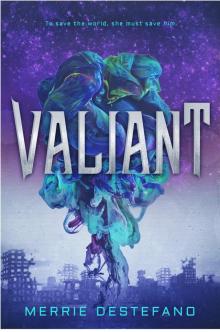 Valiant
Valiant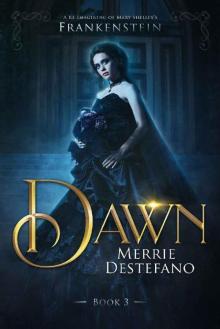 Dawn: A Re-Imagining of Mary Shelley's Frankenstein (The Frankenstein Saga Book 3)
Dawn: A Re-Imagining of Mary Shelley's Frankenstein (The Frankenstein Saga Book 3)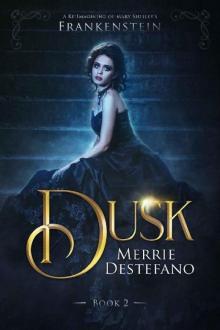 Dusk: A Re-Imagining of Mary Shelley's Frankenstein (The Frankenstein Saga Book 2)
Dusk: A Re-Imagining of Mary Shelley's Frankenstein (The Frankenstein Saga Book 2)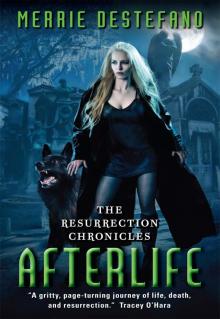 Afterlife
Afterlife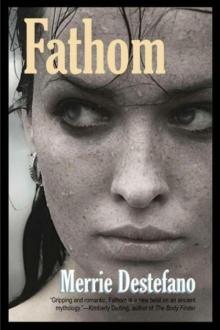 Fathom
Fathom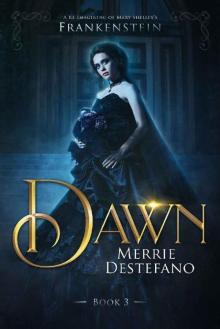 Dawn_A Re-Imagining of Mary Shelley's Frankenstein
Dawn_A Re-Imagining of Mary Shelley's Frankenstein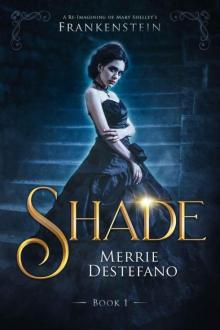 Shade: A Re-Imagining of Mary Shelley's Frankenstein (The Frankenstein Saga Book 1)
Shade: A Re-Imagining of Mary Shelley's Frankenstein (The Frankenstein Saga Book 1)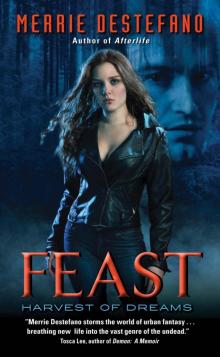 Feast
Feast Lost Girls
Lost Girls Dawn
Dawn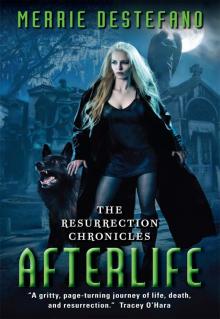 Afterlife: The Resurrection Chronicles
Afterlife: The Resurrection Chronicles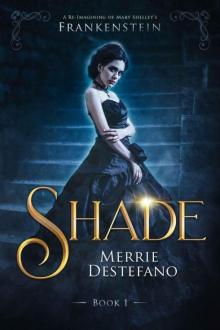 Shade_A Re-Imagining of Mary Shelley's Frankenstein
Shade_A Re-Imagining of Mary Shelley's Frankenstein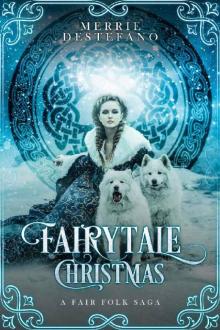 Fairytale Christmas
Fairytale Christmas